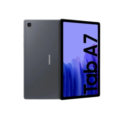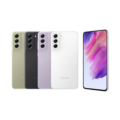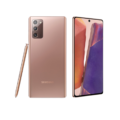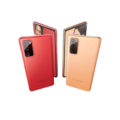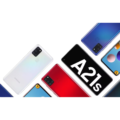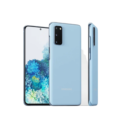- Eggcyte
- Compare Phone Specs & Price Malaysia 2024
- Beza Iphone 11 Pro dan 11 Pro Max
Beza Iphone 11 Pro dan 11 Pro Max
Salah satu perbezaan utama adalah dari segi reka bentuk. Iphone 11 mempunyai reka bentuk yang lebih sederhana dan lebih mudah dikenali berbanding dengan Iphone 11 Pro. Iphone 11 Pro pula mempunyai reka bentuk yang lebih premium dan elegan, dengan tiga kamera belakang yang tersembunyi di dalam notch yang lebih kecil.
Perbezaan lain adalah dari segi prestasi. Iphone 11 Pro mempunyai prosesor yang lebih cepat dan lebih berkuasa daripada Iphone 11. Ini bermakna bahawa Iphone 11 Pro akan lebih cepat dalam memproses data dan menjalankan aplikasi berbanding dengan Iphone 11.
Terdapat juga perbezaan dari segi kamera. Iphone 11 Pro mempunyai tiga kamera belakang yang lebih canggih daripada Iphone 11, dengan keupayaan untuk mengambil gambar yang lebih tajam dan berkualiti tinggi. Iphone 11 hanya mempunyai satu kamera belakang yang lebih sederhana.
Walaupun terdapat beberapa perbezaan antara kedua-dua telefon pintar ini, kedua-duanya masih merupakan pilihan yang baik bagi mereka yang mencari telefon pintar berkualiti tinggi dengan ciri-ciri canggih. Namun, bagi mereka yang mencari telefon yang lebih cepat, dengan kamera yang lebih canggih, dan reka bentuk yang lebih elegan, Iphone 11 Pro mungkin pilihan yang lebih sesuai.
| Product Name |
iPhone 11 Pro Harga MalaysiaiPhone 11 Pro Max Harga Malaysia |
| Product Image |
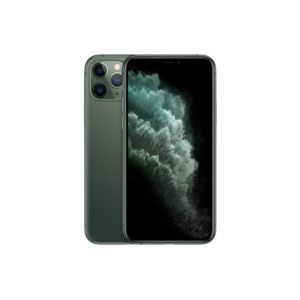
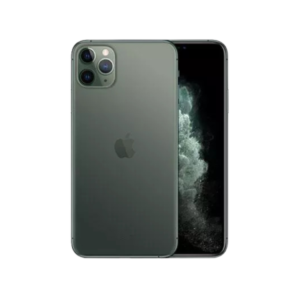 |
| Price | RM3,888.00 RM2,314.00 |
| Our Rating | |
| Brand | iPhone iPhone |
| Category | Mobiles Mobiles |
General
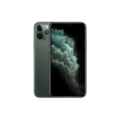 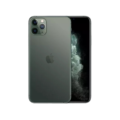 | |
| Device Type | Smart Phone Smart Phone |
| Model | A2215, A2160, A2217, iPhone12,3 A2218, A2161, A2220, iPhone12.5 |
| Announced | 10 September, 2019 10 September, 2019 |
| Released | 20 September, 2019 20 September, 2019 |
| Status | Available Available |
| Price | RM3888 RM2314 |
Design
  | |
| Type <strong>Design Type</strong> called form factor refers to a mobile phone's size, shape, and style as well as the layout and position of major components of phone. There are three major form factors seen in mobile phones => bar phones, folding phones and sliding phones. | Bar Bar |
| Dimensions | 144 x 71.4 x 8.1 mm (5.67 x 2.81 x 0.32 in) 158 x 77.8 x 8.1 mm (6.22 x 3.06 x 0.32 in) |
| Weight | 188 g (6.63 oz) 226 g (7.97 oz) |
| Body Type |
Front/back glass, stainless steel frame Front/back glass, stainless steel frame IP68 dust/water resistant (up to 4m for 30 mins) Apple Pay (Visa, MasterCard, AMEX certified) |
| Protection |
Scratch-resistant glass IP68 dust/water resistant (up to 4m for 30 mins) Scratch-resistant glass |
| Colors | Matte Space Gray, Matte Silver, Matte Gold, Matte Midnight Green Matte Space Gray, Matte Silver, Matte Gold, Matte Midnight Green |
Network
  | |
| 4G Network | 1, 2, 3, 4, 5, 7, 8, 11, 12, 13, 17, 18, 19, 20, 21, 25, 26, 28, 29, 30, 32, 34, 38, 39, 40, 41, 42, 46, 48, 66 - A2215 1, 2, 3, 4, 5, 7, 8, 11, 12, 13, 17, 18, 19, 20, 21, 25, 26, 28, 29, 30, 32, 34, 38, 39, 40, 41, 42, 46, 48, 66 - A2218 |
| SIM <strong>SIM</strong> (Subscriber Identity Module) is a small card that contains mobile network subscriber's account information. This allows the phone using the card to attach to a mobile network. The SIM card is most commonly associated with GSM and UMTS mobile networks. Moving a SIM card from one phone to another allows a subscriber to switch mobile phones without having to contact their mobile network carrier. SIM cards can also be used by a phone to store limited amounts of data, such as phone numbers and text messages. | Standard SIM Standard SIM |
| Dual SIM | Nano-SIM, dual stand-by Nano-SIM/eSIM, dual stand-by |
Display
  | |
| Display Type <strong>Display Technology => </strong> A number of display technologies and types used in mobile phones => TFT (Thin Film Transistor), IPS (In-Place Switching), OLED (Organic Light Emitting Diode), AMOLED (Active-Matrix Organic Light-Emitting Diode), Super AMOLED (an even advanced version of AMOLED), Resistive Touchscreen (Resistive touchscreens contain two layer of conductive material with a very small gap between them which acts as a resistance), Capacitive Touchsceen (Capacitive touchscreen technology consists of a layer of glass coated with a transparent conductor) | Super Retina XDR OLED Super Retina XDR OLED |
| Size | 5.8 inches, 84.4 cm2 (~82.1% screen-to-body ratio) 6.5 inches, 102.9 cm2 (~83.7% screen-to-body ratio) |
| Resolution | 1125 x 2436 pixels, 19.5:9 ratio (~458 ppi density) 1242 x 2688 pixels, 19.5:9 ratio (~458 ppi density) |
| Display Colors <strong>Display Colors</strong> is refers to the number of different shades of colors that the screen is capable of displaying => 64K colors, 256K colors and 16 million colors, Obviously 16M is highest available range of colors and better than others. | 16M Colors Matte Space Gray, Matte Silver, Matte Gold, Matte Midnight Green |
| Pixel Density <strong>Pixel Density (PPI)</strong> is refers to the concentration of pixels on a particular display, measured in pixels per inch (ppi). Pixel density is calculated by dividing the diagonal pixel resolution of a display by its diagonal size, higher pixel density better display quality. | 458 ppi density 458 ppi density |
| Touch Screen | Yes, Multitouch Yes, Multitouch |
| Display Protection <strong>Display Protection => </strong> Gorilla Glass is a special alkali-aluminosilicate glass shield with exceptional damage resistance that helps protect mobile displays from scratches, drops, and bumps of everyday use, It is always better to go for a smartphone with Gorilla Glass for that added protection and peace of mind. | Scratch-resistant glass Scratch-resistant glass |
| Features |
Scratch-resistant glass, oleophobic coating 800 nits max brightness Dolby Vision HDR10 Apple Pay (Visa, MasterCard, AMEX certified) Wide color gamut True-tone 120 Hz touch-sensing HDR10, Dolby Vision, 800 nits (HBM), 1200 nits (peak) |
Camera
  | |
| Rear Camera <strong>Camera</strong> is able to capture photographs and usually videos, The most important characteristics of a camera are the resolution (measured in megapixels), lens focus type (fixed or automatic), higher megapixel cameras are known to capture higher quality photos, but not always a good measurement of the photos quality. |
Triple Camera 12 MP, f/1.8, 26mm (wide), 1/2.55", 1.4µm, dual pixel PDAF, OIS 12 MP, f/2.0, 52mm (telephoto), 1/3.4", 1.0µm, PDAF, OIS, 2x optical zoom 12 MP, f/2.4, 120˚, 13mm (ultrawide), 1/3.6" Triple Camera 12 MP, f/1.8, 26mm (wide), 1/2.55&quot;, 1.4µm, dual pixel PDAF, OIS 12 MP, f/2.0, 52mm (telephoto), 1/3.4&quot;, 1.0µm, PDAF, OIS, 2x optical zoom 12 MP, f/2.4, 120˚, 13mm (ultrawide), 1/3.6&quot; |
| Front Camera |
Single Camera 12 MP, f/2.2, 23mm (wide), 1/3.6" SL 3D, (depth/biometrics sensor) Single Camera 12 MP, f/2.2, 23mm (wide), 1/3.6&quot; SL 3D, (depth/biometrics sensor) |
| Image | 2160p 2160p |
| Video | 4K@24/30/60fps, 1080p@30/60/120fps, gyro-EIS 4K@24/30/60fps, 1080p@30/60/120/240fps, HDR, stereo sound rec. |
| Camera Features |
Quad-LED dual-tone flash, HDR (photo/panorama) HDR Dual-LED dual-tone flash, HDR (photo/panorama) |
Software
  | |
| Operating System <strong>OS => </strong> Every computer system run on a base software called Operating System (OS). Operating System controls all basic operations of the computer (such as smartphone, PDAs, tablet computers and other handheld devices). The Operating System allows the user to install and run third party applications (apps), apps are used to add new functionality to the device. | iOS 13, upgradable to iOS 13.1.2 iOS 13 |
| User Interface <strong>UI</strong> or user interface of a device is the look and feel of the on-screen menu system. How it works, its color scheme, how it responds to button presses, all of these things are part of the user interface. | Apple A13 Bionic (7 nm+) Apple A13 Bionic (7 nm+) |
Hardware
  | |
| Chipset <strong>Chipset</strong> is a group of integrated circuits designed to perform one or a more dedicated functions, often with real time computing constraints, Popular smartphones are equipped with more advanced embedded chipsets that can do many different tasks depending on their programming. | Apple A13 Bionic (7 nm+) Apple A13 Bionic (7 nm+) |
| CPU <strong>CPU</strong> (Central Processing Unit) mostly known as processors, CPU processes instructions in order to carry out certain functions that make your device operate properly. Processors are often described as the brain of computers, smartphones and tablets, Smartphones and tablets rely on processors to carry out their every task, Processors are an incredibly important factor in selecting any type of computing device, including your smartphone. | Hexa-core (2x2.65 GHz Lightning + 4x1.8 GHz Thunder) Hexa-core (2x2.65 GHz Lightning + 4x1.8 GHz Thunder) |
| GPU <strong>GPU</strong> (Graphics Processing Unit) is a single-chip processor designed to rapidly manipulate and alter memory to accelerate the creation of images in a frame buffer intended for output to a display, This includes things such as lighting effects, object transformations, and 3D motion. | Apple GPU (4-core graphics) Apple GPU (4-core graphics) |
| RAM (Memory) <strong>RAM</strong> (Random Access Memory) is a type of computer memory that can be accessed randomly, any byte of memory can be accessed without touching the preceding bytes that allows information to be stored and accessed quickly from random locations. RAM is the most common type of memory found in computer systems, smartphones, tablets and other electronic devices. | 4 GB 4 GB |
| Internal Storage <strong>Internal Storage</strong> is a data storage space (flash memory) mostly used in smartphones, tablets and other electronic devices where operating system, apps, music, photos, videos, files and other user data Is stored. | 64GB, 256GB, 512GB, NVMe 64GB, 256GB, 512GB, NVMe |
| Card Slot <strong>Memory Card Slot</strong> is a special slot for inserting a memory card. Memory cards allow you to expand the phone's built-in memory, A memory card (sometimes called a flash memory card or a storage card) is a small storage medium used to store data such as text, pictures, audio, and video, for use on small, portable or remote computing devices such as mobile phones, mp3 players, digital cameras. | No No |
| Sensors <strong>Sensors</strong> are electronic components that detects and responds to some type of input from the physical environment. The specific input could be light, heat, motion, moisture, pressure and location, The output is generally a signal that is converted to use in computing systems, a location sensor, such as a GPS receiver is able to detect current location of your electronic device. |
Face ID, accelerometer, gyro, proximity, compass, barometer Ultra Wideband (UWB) support Face ID, accelerometer, gyro, proximity, compass, barometer Ultra Wideband (UWB) support |
Battery
  | |
| Battery Type <strong>Battery Type => </strong> Cell phones run on various kinds of batteries depending on the manufacturer, phone size or shape and features. There are basically four types of cell phone batteries => Lithium Polymer, Lithium Ion, Nickel Metal Hydride and Nickel Cadmium. | Li-Ion (Lithium Ion) Li-Ion (Lithium Ion) |
| Placement | non-removable (11.67 Wh) non-removable (15.04 Wh) |
| Capacity <strong>Battery Capacity</strong> is a measure (typically in Amp-hr) of the charge stored by the battery, and is determined by the mass of active material contained in the battery. The battery capacity represents the maximum amount of energy that can be extracted from the battery under certain conditions. | 3046 mAh 3969 mAh |
| Charging | Wired, PD2.0, 50% in 30 min (advertised) Wireless (Qi) Wired, PD2.0, 50% in 30 min (advertised) Wireless (Qi) |
Connectivity
  | |
| Bluetooth <strong>Bluetooth</strong> is a wireless communications technology for exchanging data between mobile phones, headsets, computers and other network devices over short distances without wires, Bluetooth technology was primarily designed to support simple wireless networking of personal consumer devices. | 5.0, A2DP, LE 5.0, A2DP, LE |
| Wi-fi <strong>Wi-Fi</strong> is a popular wireless networking technology using radio waves to provide high-speed network connections that allows devices to communicate without cords or cables, Wi-Fi is increasingly becoming the preferred mode of internet connectivity all over the world. | Wi-Fi 802.11 a/b/g/n/ac/6, dual-band, hotspot Wi-Fi 802.11 a/b/g/n/ac/6, dual-band, hotspot |
| Wi-fi Hotspot | |
| USB | Lightning, USB 2.0 Lightning, USB 2.0 |
| GPS <strong>GPS</strong> The Global Positioning System is a satellite-based radio navigation system, GPS permits users to determine their position, velocity and the time 24 hours a day, in all weather, anywhere in the world, In order to locate your position, your device or GPS receiver must have a clear view of the sky. | GPS, GLONASS, GALILEO, QZSS GPS, GLONASS, GALILEO, QZSS |
| NFC <strong>NFC</strong> (Near field communication) is a set of standards for smartphones and similar devices to establish peer-to-peer radio communications with each other by touching them together or bringing them into proximity, usually no more than a few inches. | |
| Wireless Charging <strong>Wireless Charging</strong> (Inductive Charging) uses an electromagnetic field to transfer energy between two objects. This is usually done with a charging station. Energy is sent through an inductive coupling to an electrical device, which can then use that energy to charge batteries or run the device. | Yes Yes |
Media
  | |
| Loudspeaker | Voice 71dB / Noise 73dB / Ring 80dB Voice 71dB / Noise 74dB / Ring 79dB |
| Handsfree | No No |

